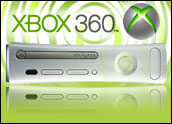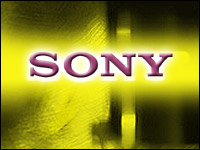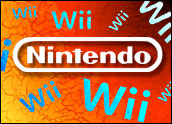
As sales numbers for the holiday season begin to surface, it appears the video game console industry sustained the heavy momentum it enjoyed throughout 2007.
Releases put out in the last week from both Microsoft and Sony point to a solid season for the Xbox 360 and PS3. While Nintendo has not released any sales totals for the Wii, estimates indicate another strong showing for the console.
Statistics from VG Chartz, a video game sales tracking firm, indicate that for the period stretching from Nov. 4 to Dec. 30, Nintendo sold more than 2.7 million Wiis. Microsoft came in second with just over 2.1 million. Sony trailed in third place moving nearly 1.3 million machines off of store shelves. Although PS3 sales were still significantly lower than those for the Wii and Xbox 360, Sony improved upon sales for the same period in 2006 by nearly 50 percent.
“The price cut down to $399 on one of the PS3s; certainly helped them. It got them into the game in terms of unit sales for the fourth quarter. They wouldn’t have hit those numbers if they hadn’t cut the price,” said Mike Goodman, a Yankee Group analyst.
Wii Sales
While the estimated numbers for Nintendo kept the Wii ahead of its competition for the holiday season, sales for the console would have been much higher if the company had been able to solve the supply woes that have bedeviled it since the Wii launched in November 2006.
“It’s hard to place a figure on Wii sales, but I’d guess that Nintendo could have sold 2 million more Wiis in the U.S. this year and another 2 million in Europe had they been able to supply the channel,” said Michael Pachter, an analyst at Wedbush Morgan. “They can recover lost sales, since I think very few of the customers who were shut out instead opted for a PS3 or Xbox 360.”
Pachter puts the Wii customer into one of two categories: hardcore gamers who will buy a Wii anyway whenever they can get one; and casual gamers who never intended to purchase a PS3 or a 360. The latter category, he told the E-Commerce Times, did not purchase a substitute, so they will likely buy a Wii when they can get one as well.
“I don’t think that the Wii shortage helped the other two dramatically, except in the case of the hardcore gamer who didn’t own any of the consoles and who planned ultimately to buy a Wii and one of the other two. In that gamer’s perfect world, he would have purchased the Wii first — likely because of its lower price — and would have purchased one of the other consoles later,” Pachter explained.
A small percentage of those people, perhaps one in five, may have decided to “bite the bullet” and buy a higher-priced PS3 or 360 because they were unable to find a Wii, giving Nintendo an “incremental 400,000 consoles bought because of the Wii shortage,” with those sales evenly split between the PS3 and Xbox 360, he added.
“[It’s] hard to say [if Nintendo’s supply issues hampered sales], as the consoles were available, just not easy to find, so most buyers probably got a Wii if they were persistent,” said Van Baker, an analyst at Gartner. He thinks “the ship has sailed” on Nintendo’s chances to recoup any sales missed during the holiday season.
However, Baker said the Wii shortfall boosted sales of the Xbox 360 and PS3, with Microsoft benefitting more than the PS3.
“[It] helped them both to some degree, but it probably helped Microsoft more, as they were the safer second choice,” he told the E-Commerce Times.
New Life
For Sony, the holiday season proved that the sales-challenged PS3 still had some kick left in it, if the price was right. In North America, more than 1.2 million consumers chose to put the PS3 during the holiday season, Sony Computer Entertainment America (SCEA) announced Sunday. In more good news for the embattled hardware maker, 1.4 million units of Sony’s PlayStation Portable (PSP) were scooped off store shelves, while sales of the still-available PlayStation 2 (PS2) topped 1.3 million units some eight years into its lifecycle.
“The PlayStation brand ended the year in a very strong position and clearly indicates more positive momentum going into 2008. We are particularly pleased to have sold through 1.2 million units of the PS3 during the holiday selling season,” said Jack Tretton, president and CEO, SCEA.
As Sony pats itself on the back over the bump in sales, the improvement is evidence that consumers responded to the lower price point for the PS3. Going forward, however, the PS3’s double life as a Blu-ray high-definition DVD player could also give it a slight boost, Pachter said, now that Warner Bros. has made the decision to support the format rather than HD DVD.
“Sony’s numbers show that price matters, with higher hardware sales at lower prices,” Pachter pointed out. “They will continue to market in 2008, and the Warner Bros. commitment to Blu-ray will probably help people decide that the PS3 is a cheap way to adopt that format. My guess is that Sony pulls even with Microsoft later this year on a monthly sales basis.”
Blu-ray alone, however, will not be the key for Sony and the PS3 unless the hardware maker can produce the must-have game titles, which are the real reason people buy consoles, as well as get the device below the $299 price point, Yankee Group’s Goodman told the E-Commerce Times. He pointed to the 8 million copies of “Halo 3” Microsoft has sold since the game’s release in September.
“At this point in the process, all three consoles are irrelevant. It’s all about the software that’s coming out on the consoles. That’s what sells the consoles. People are no longer buying consoles; they’re buying the software, and then they buy the console that plays that software. And they’re looking at what console can I economically get to play the software that I want,” he explained.
“[Sony] has been horrible. They have had the worst launch line-up. It’s been a year now and they have had the worst library of titles I’ve ever seen from a console manufacturer,” Goodman added.
With the anticipated release of “Metal Gear Solid 4” set for June 17, as well as Sony’s virtual world “BigLittlePlanet” and “Home” scheduled in the first half of 2008, new offerings should give the game maker a needed boost, Goodman said.
“Hopefully [in] 2008 that table is going to turn, because they have some stuff that should do better. The holy grail for them is ‘Metal Gear Solid;’ that should be coming out. They need better software. They have to execute on these things. They have to get their software house in order. If they don’t, they are in big trouble,” he stated.
Leading the Pack
As it did when it released the Xbox 360 in 2005, a full 12 months before both Nintendo and Sony launched their next-generation consoles, Microsoft took the lead following the holiday shopping season, reportedly sending out e-mails touting sales of the Xbox 360 to date.
After two years on the market, 17.7 million households worldwide own an Xbox 360 console, according to Microsoft. The company did not release stats on holiday sales or total sales for 2007, but according to VG Chartz, the hardware maker sold just over 3.2 million consoles worldwide between Nov. 4 and Dec. 30. In its second year on store shelves, the Xbox 360 sold more than 8.2 million consoles.
By comparison, the Wii tallied up sales of more than 16.7 million for the year, and the PS3 came in with 7.6 million units sold.
“[Microsoft] had a good holiday, and their attach rate is the highest of any console, not to mention over 10 million Xbox Live Members,” Gartner’s Baker noted, explaining how Microsoft met sales expectations for the season.
Despite the continuing popularity of the Wii and a resurgent PS3, which Pachter expects to sell around 18 million and 12 million to 13 million, respectively, 2008 should be a good year for Microsoft.
“Microsoft should sell another 10 million to 12 million Xbox 360s,” he concluded.
“It was a very good holiday season. The video game industry in general has to be happy with the 2007 holiday season. Third-party publishers have to be very happy with Microsoft, and we’re set up for a good 2008,” Goodman predicted.













































Social Media
See all Social Media